
Take-Akari
Illuminated bamboo lanterns glowing warmly in the night at a Japanese summer festival. Handcrafted patterns of circular holes form artistic designs, creating a serene and festive atmosphere that blends traditional craftsmanship with contemporary light art.
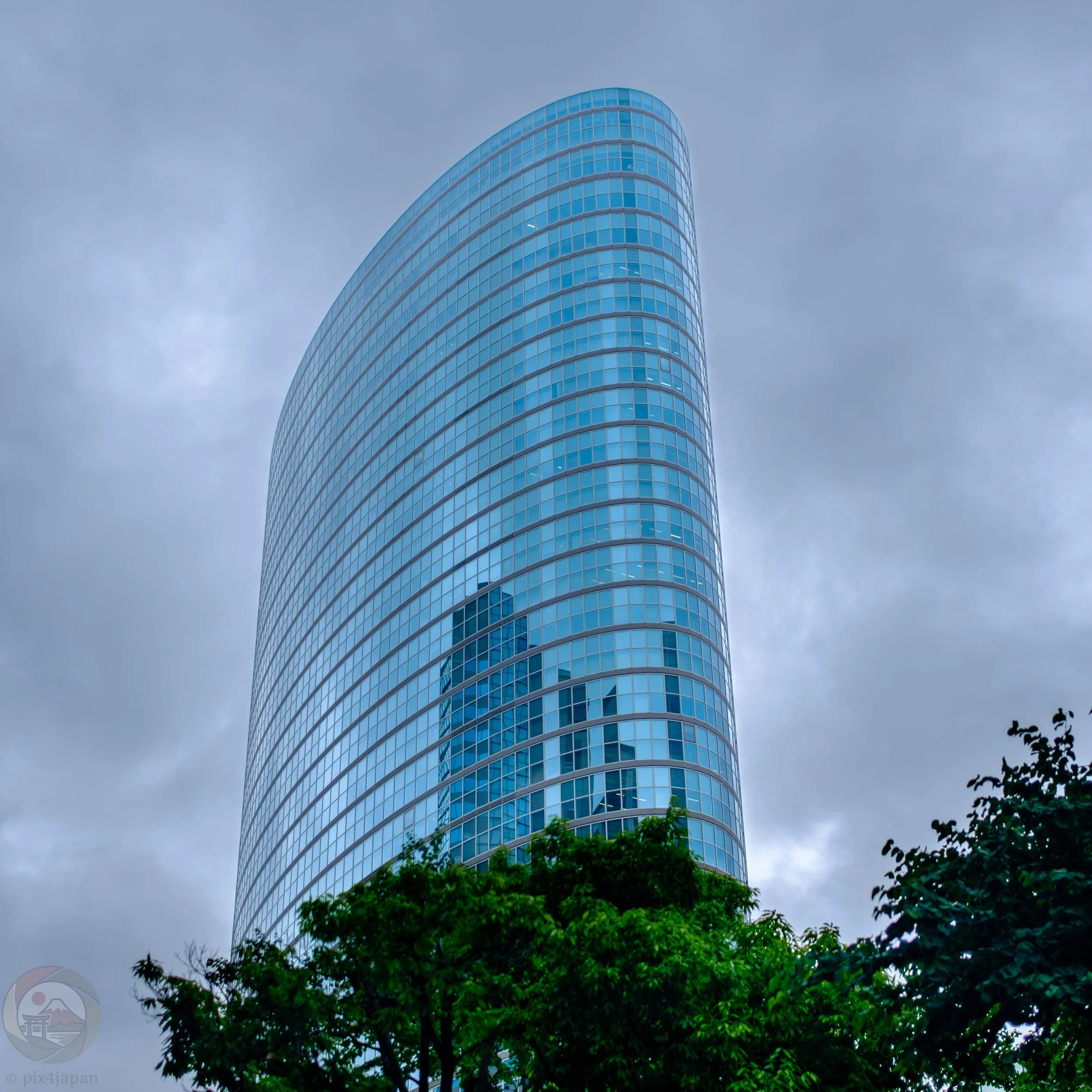
Shinagawa Intercity
The oval-shaped glass facade of Tower A in the Shinagawa Intercity complex near Shinagawa Station in Tokyo’s Minato Ward stands as a modern high-rise landmark of the Shinagawa’s skyline since 1998.
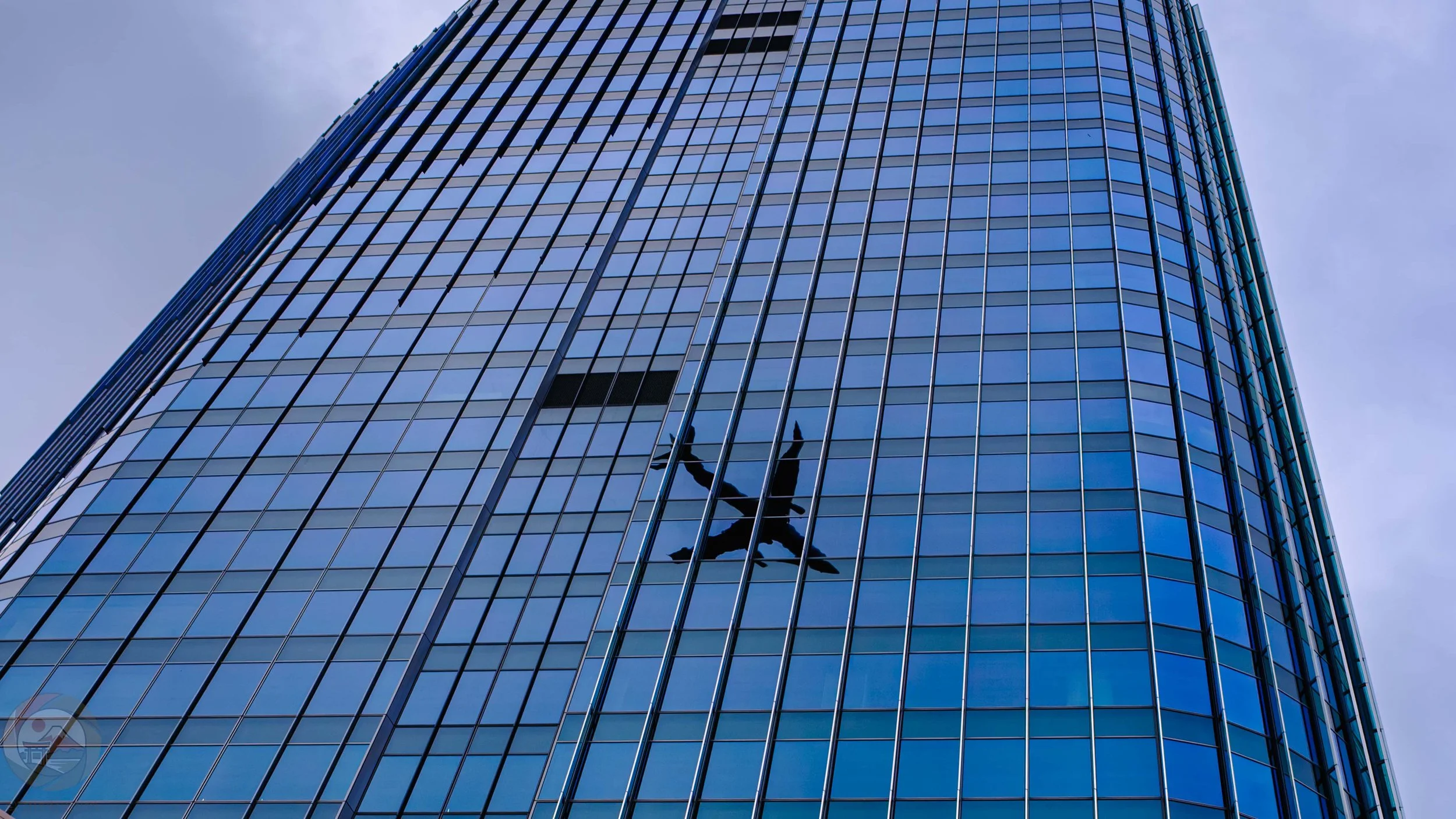
Gateway Skies
Caught between the steel and glass of new skyscrapers and the steady hum of jets arriving and departing Haneda Airport, Tokyo’s ever-changing skyline tells a story of constant transformation.

100 Colors
Vibrant rainbow-colored public art installation by Emmanuelle Moureaux at Gateway Park outside Takanawa Gateway Station in Tokyo, Japan, with modern glass towers in the background on a clear summer day.

Nippon Maru
The Nippon Maru, a former training ship, is permanently docked in the historic Yokohama Dock No. 1, now part of Nippon Maru Memorial Park.
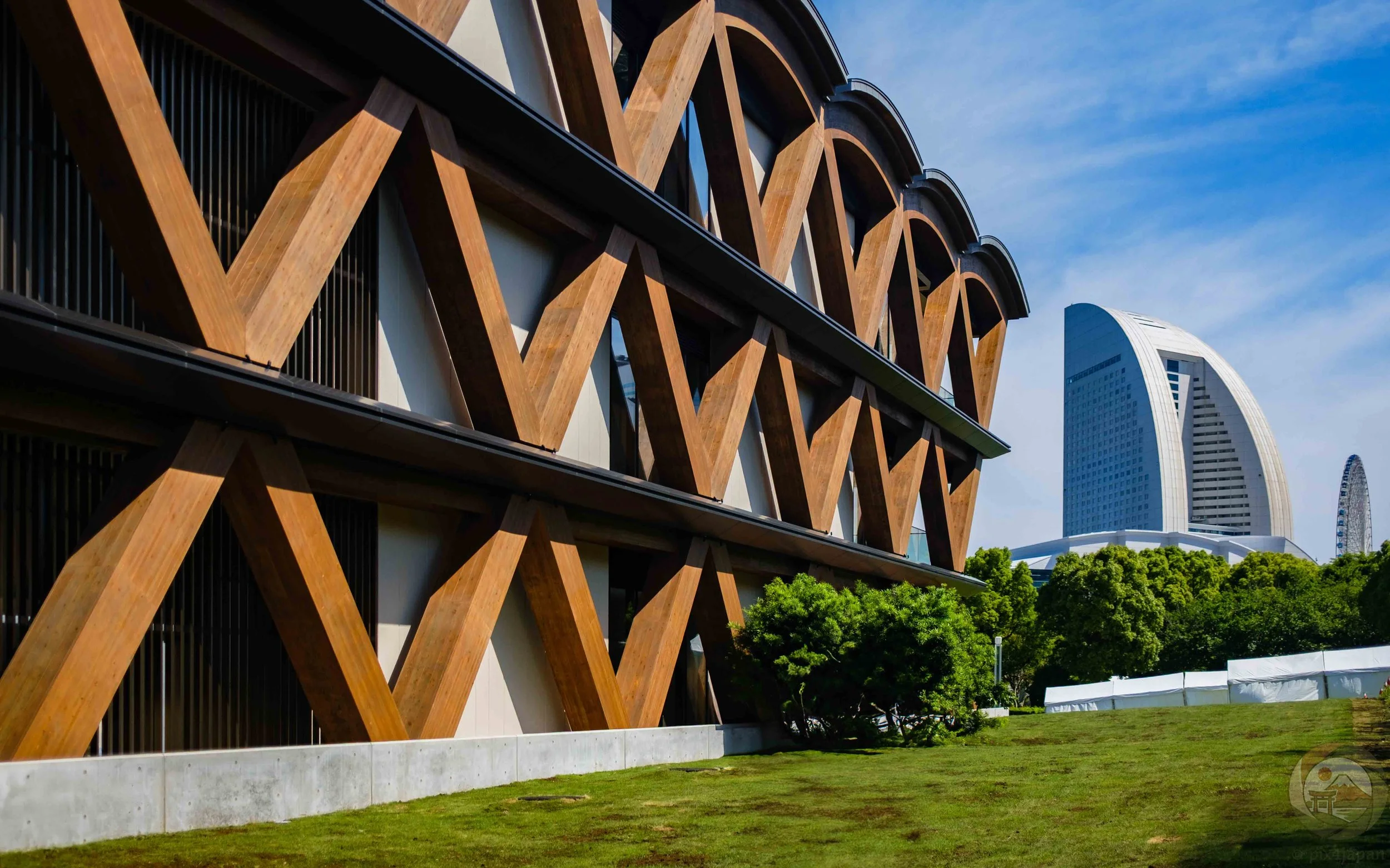
Timber Wharf
Modern timber architecture of “Yokohama Timber Wharf” in Yokohama contrasts with the InterContinental Yokohama Grand’s curved concrete and glass design.
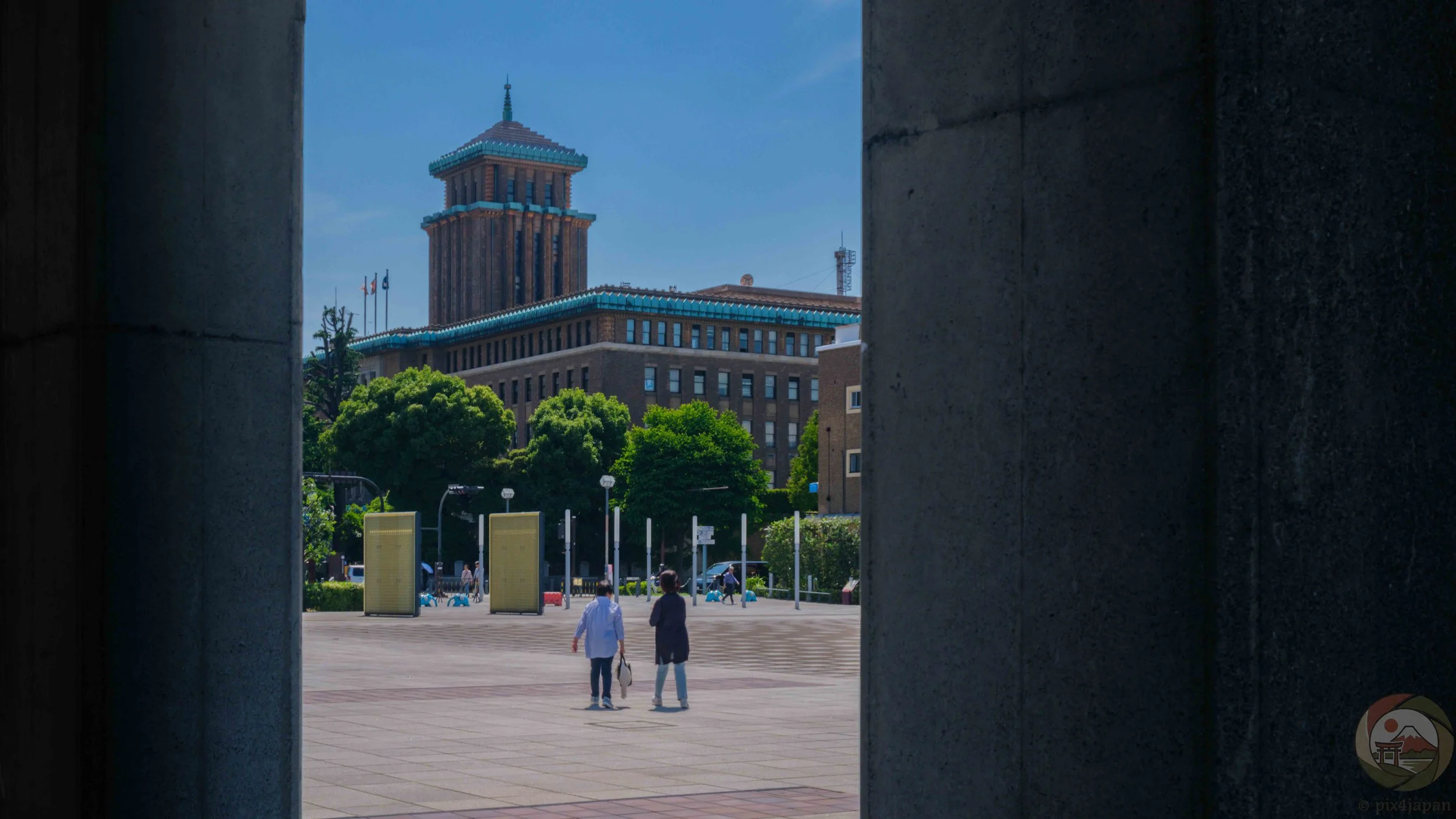
King Tower
The Art Deco Kanagawa Prefectural Government Building (1928) stands as a striking symbol of Yokohama’s modern history. From Port Opening Square along historic Nihon-Odori Street, visitors can enjoy views of the Port and attend open-air events.

mosaic tiles
Tiled ceiling of the Indian Memorial Fountain dome in Yokohama’s Yamashita Park, donated in 1939 by the Indian community to honor Japanese assistance during the 1923 Great Kanto Earthquake and to memorialize those who died.

Hikawa Maru
Built in 1929, the NYK Hikawa Maru was a luxury ocean liner that sailed the Pacific, connecting Japan with North America. It featured gourmet cuisine, elegant Art Deco interiors, and famous passengers including Babe Ruth and Charlie Chaplin.
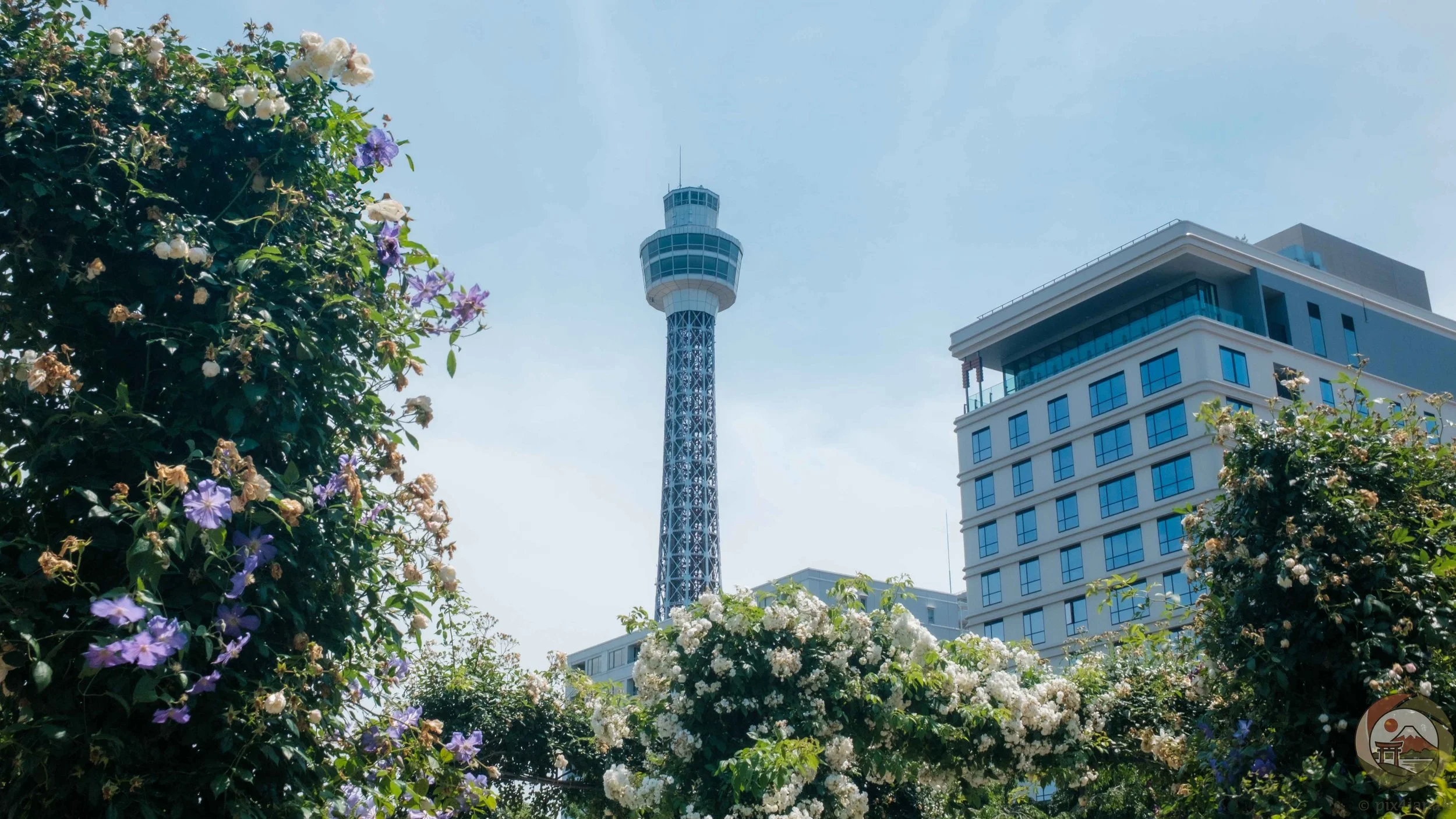
Marine Tower
Built in 1961 for Yokohama Port’s centennial, Marine Tower once held the record as the world’s tallest lighthouse. Renovated in 2009, it now features observation decks, light shows, and stunning views of the city and Mt. Fuji.